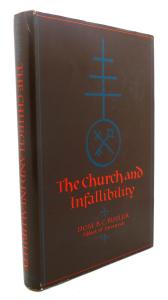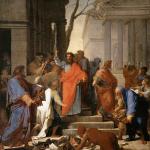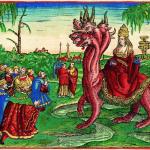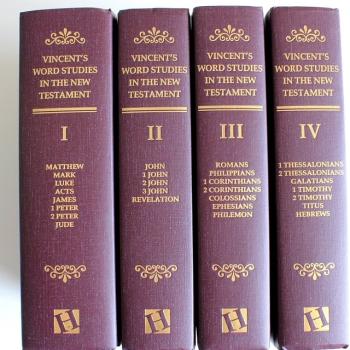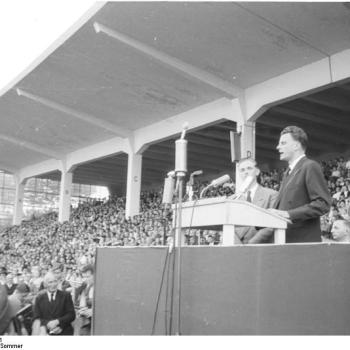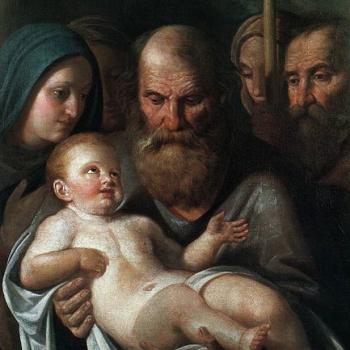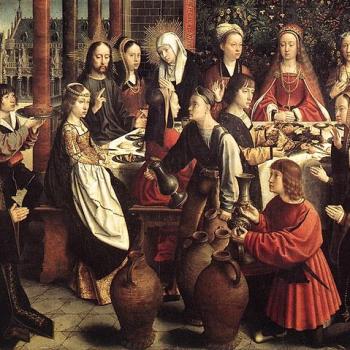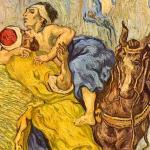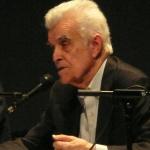Gallicanism, Ultramontanism, and Petrine Primacy in the New Testament
*
I do not know anything in the teaching of the modern Church which suggests that an Ecumenical Council (which requires papal acceptance as such for its claim to the title) is any less of a “main organ” than is the Pope, defining a doctrine (as recently that of the Assumption) without the formality of a Council. The country can be governed by Order in Council (a direct act of superior authority) or by Act of Parliament (and a Bill only becomes an Act when it receives the royal signature), but it would be rash to assume that the claim of Parliament to be the “main ” organ of government is not upheld. Similarly, it is of course simply a mistake to say, as Salmon himself does, (S, page 109) that “modern Catholics seek to show that infallibility does not reside in Councils.” The Church recognizes about twenty [now 21] Ecumenical Councils, and all their doctrinal definitions are accepted as infallible.
Chapter 10 of the Abridgement is devoted to the Vatican Council [1870], at which the Pope’s infallibility was defined and the old theological controversy between Gallicans (who thought a Council superior to a Pope) and Ultramontanes was thus terminated by a conciliar act. Salmon’s main source for his sharply critical account of the Council was apparently “Quirinus,” and this means that it was largely Dollinger, whom Mr. Woodhouse describes as “The great R.C. historian.” It is true of course that Dollinger was a great historian, and that he had been a Catholic. But for ten years before the Council he had been moving towards what in modern jargon might be called the “left” of the theological world, and he left the Church as a result of the Council and its decisions. He is therefore a partial witness.
[see my related article, Döllinger & Liberal Dissidents’ Rejection of Papal Infallibility (11-28-04) ]
There had been in antiquity what amounted to a traditional recognition that the Church of Rome had always been a citadel of orthodoxy, that its “line” on any doctrinal issue might be presumed to be correct, and that the infallible Peter spoke in the official utterance of the bishop who, as Bishop of Rome, inherited his “apostolic chair” (sedes apostolica). There had further been, and especially in the West, a practical recognition of Rome’s de jure leadership of the Catholic Church. Broadly speaking, these ideas met no serious and persistent opposition from orthodox ecclesiastical quarters either before 1054 (when, under Michael Caerularius, the Eastern Churches drifted into separation from the West) or, in the West, after that date, until the scandals of the Western schism and the period of the anti-Popes shook the prestige of the Roman See.
The Council of Constance (1414-17), in an endeavour to bring the Western schism to an end, declared that
a General Council, as representing the Universal Church, held its power immediately from Jesus Christ…and that every one, even the Pope, was bound to obey the Council in matters concerning the faith, the extinction of the schism, and the reform of the Church in its head and members; and that the Council had authority over the Pope as well as over all Christians.
This is the theory of theological (as distinct from political) Gallicanism, and the acts of this Council were approved by the Pope “saving the rights, dignity, and pre-eminence of the Apostolic See.” Theological Gallicanism found a home in France, where the great Bossuet (17th century) was one of its spokesmen, and though its famous “Four Articles” had in 1690 been declared by the Pope to be “null and void,” . . .
Meanwhile, the other, and ultimately victorious explanation of the relation of bishops (or Council) and Pope, had been systematically set forth by St. Robert Bellarmine in 1586. This is the theory known as Ultramontanism:
The Pope is the supreme judge in deciding controversies on faith and morals. When he teaches the whole Church in things pertaining to faith, he cannot err.
The nineteenth century, however, witnessed the rise of a movement of thought to which the name New Ultramontanism, or “Neo-Ultramontanism,” has been applied. [T]he school of thought opposed to the New Ultramontanism came to be described as “Gallican.” But, says [Cuthbert] Butler, “the liberal Catholics were not, as such, Gallicans” — that is, they did not, as such, maintain the theological Gallicanism of Bossuet. Their great leader was Montalembert, who declared that he detested Gallicanism and its official formularies; . . .
In England, Ullathorne may be taken as a typical case of a man educated on the lines of the old theological Gallicanism who, by the date of the Vatican Council, had evolved into a supporter of the moderate Ultramontanism canonised in that Council’s definition of faith. Cardinal Newman, the greatest of the Oxford converts, stated after the Council, as we have seen, that he had held this theological opinion ever since his conversion a quarter of a century earlier. But the great layman convert W. G. Ward, editor of the Dublin Review since 1863, was an ardent advocate of extreme theological Neo-Ultramontanism:
He held that the infallible element of bulls, encyclicals, etc., should not be restricted to their formal definitions, but ran through the entire doctrinal instructions; the decrees of the Roman Congregations, if adopted by the Pope and published by his authority, thereby were stamped with the mark of infallibility, in short, ‘his every doctrinal pronouncement is infallibly directed by the Holy Ghost’…Ward’s attitude to encyclicals and allocations was much like the Protestant attitude to the Bible…He insisted…that his view was the only Catholic one…only invincible ignorance excusing [those who rejected it] from mortal sin. [Cuthbert Butler, The Life and Times of Bishop Ullathorne, vol. 2, 41-44]
It can be well understood that such as extreme position, advocated with force and ability, by a theologian like Ward, aroused the greatest anxiety in more moderate men such as Newman, with a deep knowledge of Christian history and a sense of those “fine distinctions” which looked like treachery to Ward, and like special pleading to Salmon.
It will thus, I take it, be seen that it is altogether mistaken to suppose that the line which separates the minority at the Council from the majority must be the same as the line dividing those who held, from those who rejected, the opinion that the Pope as pastor of the flock of Christ is superior to any Council lacking his ratification, and that he is therefore infallible. There were those who held this opinion as theologically true, but feared either the extreme position of the Neo-Ultramontanes or the effect of even a moderate definition upon governments and upon non-Catholics, and the danger that it would lead to an undesirable “centralization” and a diminution of the rights and status of the other diocesan bishops. In fact, as we can now see, the Neo-Ultramontanes did not prevail at the Council, democratic governments have found it possible to maintain diplomatic relations with the Holy See, and the bishops had their authority secured to them in the Canon Law of the Latin Church. Unfortunately, many non-Catholics continue, like Salmon, to imagine that Neo-Ultramontanism is now the official creed of the Catholic Church.
Chapter Seven: St. Peter’s Primacy
The course of Salmon’s argument now takes him back from the Vatican Council to the origins of Christianity, and in the eleventh chapter of the Abridgement the “Petrine texts” and St. Peter’s position as deducible from the New Testament are investigated; and the claim is made that whatever special prerogatives Christ gave to the first among his Apostles, still no provision was made whereby these prerogatives should be transmitted to a line of individual successors of St. Peter.
Before descending into the detail of these discussions, there is a point which I think it legitimate to make here. The foundation of the Church’s “case against Protestantism” is that Christ entrusted his truth and grace to a visible society of human beings, the perpetuity of which society on earth is assured by divine Providence; and such a society does in fact appear to be the one direct outcome in history of Christ’s life on earth. Approaching the New Testament documents as historians, we see in them the evidence of that Church’s existence and activity in the apostolic generation. The books of the New Testament were written by and for members of that society. When we come to the second and subsequent centuries of our era the “Great Church” is indeed flanked by other more or less Christian bodies, and Christian influence makes itself felt beyond the limits of any social incorporations of Christianity. But these other bodies, in so far as they are (imperfectly) Christian, and these influences, all derive from the “Great” or “Catholic” Church. And so it has been ever since.
The story of Christianity has been, in fact, the story of a great central body known to itself and to the non-Christian world as the “Catholic Church,” and alongside it of other bodies and influences derived historically from it. I know that all Christians see things in this light. But no unprejudiced person will deny that this is at least a reasonable way of looking at the “Christian fact” in history, somewhat as the Copernican hypothesis is a reasonable way of looking at the phenomena relating to what we now call the solar system. Moreover, for a Christian who believes that something called “the Church” was established by Christ as an essential part of his work for all mankind, this way of looking at the Christian story makes sense of the New Testament evidence on this subject.
Now there is one text, and only one, in the Gospels, in which Christ’s intention to found such a “Church” is expressed in language incorporating the actual word “Church” (ecclesia). It is the famous words of Christ in the middle of St. Matthew’s Gospel:
Blessed art thou, Simon Bar-jonas, because flesh and blood hath not revealed it [viz. the fact that Jesus is ‘Christ the Son of the living God’] to thee, but my Father who is in heaven. And I say to thee: That thou art Peter; and upon this rock will I build my church, and the gates of hell shall not prevail against it. And I will give to thee the keys of the Kingdom of heaven. And whatsoever thou shalt bind upon earth, it shall be bound also in heaven; and whatsoever thou shalt loose on earth, it shall be loosened also in heaven. (Matthew 16:17-19)
This passage has, of course, and for obvious reasons, been the storm-centre of controversies, literary, historical, exegetical, and theological. All I want to do here, however, is to emphasize that the passage does stand there, in the New Testament, and in a prominent position in the New Testament.
The text cries out across the centuries to the contemporary fact and the contemporary fact harks back to the original commission. I venture to think that to anyone who believes in divine Providence; and especially to anyone who already believes, or inclines to believe, that the divine entered into the texture of human history in a unique and supreme way in the Person of Jesus of Nazareth; and above all to anyone who believes that Christ founded a visible society that was to represent him on earth till the end of history, this correspondence between the beginning and the end of the Christian story, so far as that story has yet been unrolled, is profoundly moving, claims the most earnest and prayerful attention, and is an invitation to faith.
The correspondence can, of course, more or less, be “explained away,” just as a believing Jew will “explain away” the correspondence between Old Testament Judaism’s messianic hope and the Christian message. The method of explaining away is to concentrate attention on the human and other creaturely causes which have influenced and in some measure affected the development of the Church. This is the method adopted by Salmon, and to a discussion of his use of it we must shortly turn.
It is surely no great straining of this text, to see in it the bestowal on Peter, for transmission to those who should succeed in his see, of the powers and privileges which Catholics believe that the Pope possesses. But even one who does not see this in the text, must surely admit that the scriptural evidence is not demonstrably inconsistent with the Catholic belief; and this is all we need. And so, too, with the evidence of subsequent history.
A Catholic does not yield religious faith to the Vatican definition because he thinks that the truth of the definition can be historically proved without appeal to the authority of the Church that holds its teaching commission from Christ. It may be difficult for a western non-Catholic to believe in the Papacy; but the difficulty will be principally caused by the fact that the non-Catholic does not yet believe in the Church as a visible association of baptized believers.
What, in fact, is contained in the passage of St. Matthew’s Gospel quoted above? It is desirable to read the passage in its context, and I suggest that we thus get the following as a probable exegesis.
St. Peter has confessed, on behalf of the other Disciples, that Jesus is “the Messiah, the Son of the living God.” In reply Christ first “congratulates” him on having learned this truth (the cardinal Christian truth when it is a question of distinguishing Christianity from Judaism) not by human means but by divine revelation. He then echoes St. Peter’s words to him; “[As thou hast said that I am Christ, the son of the living god] I in my turn say to thee, Thou art Kepha [the Aramaic for Rock].” The parallelism with Peter’s confession (which was not “Thou art Jesus,” but “Thou art the Messiah…”) indicates that Kepha is here not simply a personal name but a name denoting a function or office; and the nature of that function is at once made clear: “Thou art Rock, and upon this Rock I will build my Church.”
Peter then, in his official or functional capacity, is to be the firm substructure (not a foundation stone but the Rock on which the foundation stones will rest) of the Church which Christ will “build” as a builder builds a temple or a house. “Upon this Rock I will build my Church, and the gates of Sheol [i.e. the might of the city of the powers of evil] will not prevail against it [i.e. the Church, not I think, the Rock].” Thus the Church will have a stability that will make it at all times and for ever victorious over the worst assaults of the evil that is ever conspiring against the divine cause and purpose in history. And the source of this stability will be the Rock on which the Church is built.
We naturally compare the implied simile with that which terminates the Sermon on the Mount:
Every one therefore that heareth these my words and doth them, shall be likened to a wise man that built his house upon a rock, and the rain fell, and the floods came, and the winds blew, and they beat upon that house, and it fell not, for it was founded on a rock. (Matthew 7:24f)
We note Christ’s great concern for “stability.” It is stable perseverance that counts, not a “flash-in-the-pan” enthusiasm. So too he contrasted, in the parable of the Sower, the seed sown on good ground with, for instance, that which “endured only for a season.” So, too, he promised that “he who endured to the end” should be “saved.” The man whose character survives all the storms and stresses of natural life is he who rests his behaviour permanently on a permanent adhesion to Christ’s teaching.
An individual Christian may fail and fall, as Judas did. But Christ’s promise for his Church is that it will not fail or fall. The “gates of Sheol” will not prevail against it. And the reason is that it is built upon Peter, the Rock. I will point out, in passing, that the stability of the building obviously depends upon the persistence, and persistent functioning, of the Rock. To suggest that the Church can survive and outlive the office or function signified by Peter’s “official” name, is like suggesting that the “wise man,” having once accepted and acted upon Christ’s teaching, could thereafter dispense with that “rock” and yet hope to withstand the rain and floods and winds. If the Church is to persist — and Christ assures us that it will — then the Petrine function must a fortiori persist.
We may now continue with our text. “And I will give to thee the keys of the kingdom of heaven.” The “kingdom of heaven” is the Reign of God, and the “keys” are the outward sign of investiture as the major-domo, the “second-in-command” and representative of the King himself — compare the prophecy addressed to Sobna:
I will drive thee out from thy station, and depose thee from the ministry. And…I will call my servant Eliacim the son of Helcias, and I will clothe him with thy robe, and will strengthen him with thy girdle, and will give thy power into his hand; and he shall be as a father to the inhabitants of Jerusalem, and to the house of Juda. And I will lay the key of the house of David upon his shoulder: and he shall open, and none shall shut: and he shall shut, and none shall open. (Isaiah 22:19-22)
The conclusion to be drawn from this comparison is that in the Christian dispensation, which is the historical anticipation, the realisation “in a mystery,” of the post-historic Reign of God, Peter is to have the supreme authority as the “vicar” of the heavenly King. Finally, he is told that “whatsoever thou shalt bind on earth shall be bound in heaven” etc. “Binding” and “loosing,” in the rabbinical usage, would mean excluding from, and granting readmission to, the community; or declaring the existence or the non-existence of a legal obligation. The phrase therefore seems to imply that Peter is to exercise a juridical function in the religious sphere, and his juridical decisions in this sphere will have divine sanction (“bound or loosed in heaven“).
This last sentence of the saying (“Whatsoever thou shalt bind” etc.) is repeated (with a change from the singular “thou” to the plural “you”) in a saying addressed to the Disciples in Matthew 18 (where the juridical meaning is suggested by the context, which deals with “excommunication”), and it has been argued that therefore nothing is given by it to Peter that is not given to each of the Apostles. But
- the plural reference in Matthew 18 may indicate that jurisdiction is there given to the Church as a whole, not (except by derivation) to each Apostle severally.
- The promise of the keys, in the preceding sentence, must be something peculiar to Peter, since there is no room for more than one Major-Domo in a household, one Grand Vizier in a realm. Nor is it enough to say that each Apostle (and bishop) will wield the power of the keys in his own sphere of jurisdiction or local Church; since there is no evidence to suggest that Christ ever represented himself as founding a plurality of Churches. “My Church” is to be conceived as a continuation on a higher plane of the divine theocracy of Israel, and this was (in idea) a single polity centering in the Temple, the Sanhedrim and the High Priest.
- The attempt to reduce Peter to the same level as the other Apostles breaks down most manifestly in the first of these three promises: “Thou art Rock, and upon this Rock I will build my Church.” Besides the fact that a single building will not require more than one rock to rest upon, the conclusive consideration here is that Simon Bar-jonas was the only one of the Disciples to whom the functional name Kepha (Rock) was given by Christ.
Thus we must give up the attempt to argue from the third promise (and its similarity to the promise of Matthew 18) that Peter is promised, in all this section, only equal authority with the other Apostles; and it is more reasonable to infer, from the uniqueness of the first promise, that special authority is given to him in the second; and that in the third he is given a power equivalent to that which in Matthew 18 is given to the Church as a whole.
From the Matthean passage we may now turn to John 21:13-17, with the twice-repeated injunction to Peter to “feed my lambs,” and a third bidding to “feed my sheep.” The comparison of the followers of Christ to a “flock” of which he is the shepherd occurs more than once in the Gospels. It seems reasonable to turn for illustration of John 21 to an earlier passage in the same Gospel (chapter 10) where the comparison occurs, and the unity of the flock is emphasized — “there shall be one flock and one shepherd.” With this passage in mind, I take it as the most probable interpretation of the triple injunction in John 21 that Christ is solemnly handing over the Christian flock to Peter as his own vicegerent, now that his own visible presence is about to be removed. Salmon indeed points out that the “office of tending Christ’s sheep” is not peculiar to St. Peter; the same duty is enjoined upon the Ephesian elders (Acts 10:28) and upon the elders addressed in 1 Peter 5:2. But the unity of the flock will depend upon there being one shepherd or “pastor” whose control is superior to that of any other: “one flock” requires “one shepherd.”
[Footnote: Of course, in John 10 the “one shepherd” is Christ himself. But the problem is, how the pastoral function is to be exercised in Christ’s “absence.” If one vice-pastor is not required for the one flock, there seems no reason why there should be any pastors at all other than Christ himself, and this is refuted not only by John 21 but Acts 10:28, and 1 Peter 5:2.]
And it is noteworthy that this appears to be St. Cyprian’s interpretation of the passage; while Cyprian is clear that each bishop is a “shepherd of the flock,” he describes St. Peter, and him alone among the Apostles, as him “to whom the Lord entrusts his sheep to be fed and guarded, upon whom he set and founded the Church.” If any uncertainty still remains, it should be remembered that the Johannine passage can be illustrated from the Matthaean passage, and vice versa. It is not quite natural to take the “keys” as nothing more than is given to each of the Apostles; nor is it quite natural to take the pastoral investiture of John 21 as nothing more than the apostolate to which each of the Eleven could lay claim; it is most unnatural to adopt both of these rather strained interpretations; and if a special function is intended in either case, it is probably intended in both cases.
Thirdly, there is Luke 22:32, “Satan hath desired to have you [plural, i.e. the Disciples] that he may sift you [plural]; but…thou [singular, i.e. Peter], being converted, establish thy brethren.” The passage, taken by itself, could not, as Salmon points out, be suspected to contain “a revelation concerning the Church’s appointed guide to truth in all time.” But Salmon’s principle in exegesis appears to be the (secular) Roman one: Divide and master, divide et impera. When it is recognized that Peter had been designated as the Rock and Viceroy, and was to be appointed the pastor, of Christ’s Church, Kingdom and Flock; and when it is remembered, in particular, that the function of the rock is to give stability to the superstructure, it is possible to hold that in this Lucan passage Peter is being bidden to exercise the stabilising function (establish, make firm, confirm) implied by his new name of Rock (though the name used in the Lucan context is not Peter or Kepha, but Simon). As Simon, Peter is a prey to temptation like his brethren; but as Peter he is called upon to impart to them a (supernatural) stability.
These four Gospel passages have of course to be seen against the general background of the New Testament; in which the primacy of Peter stands out so clearly, as is recognized perhaps by modern non-Catholic scholarship more fully than in Salmon’s day.
But Salmon tries to diminish the weight of the New Testament evidence in two ways.
(1) He argues that the Fathers of the Church did not find the papal primacy in these passages; and indeed that patristic exegesis often finds a different original meaning, or no special significance at all, in the texts which are adduced by Catholics in support of the primacy. We may reply
- the Fathers have a way of finding in a given text of Scripture just so much as is relevant to their interest at the moment — thus Origen can argue, for moral reasons, that (in a sense) each Christian is a “Peter” on which the Church is built. But they do not always mean to exclude other possible interpretations. They regarded the words of Scripture as full of unfathomable mysteries, and would take that aspect of truth which helped their immediate purpose.
- Salmon would hardly have objected to our preferring the real and full meaning of the New Testament passages to the meanings put upon them by individual Fathers.
- Dom John Chapman has a remarkable essay on St. John Chrysostom’s references to St. Peter, and to this article I refer anyone who wishes to know what one of the greatest ancient exegetes thought of the New Testament evidence in regard to Peter: “the first of the Disciples,” “the unshaken foundation,” “who was entrusted with the keys of heaven,” who did not receive the see of Jerusalem (given to St. James) because Christ “made Peter the teacher not of that see but of the world.”
- As the Church’s consciousness of the special role of the Church and See of Rome developed, so her exegesis developed too; and as her articulate view of the Papacy approximated gradually to that defined by the Vatican Council, so her interpretation of the Petrine texts came to approximate to what, I have argued, is their real meaning.
(2) Salmon writes:
[I]t seems to me the most obvious and natural way of understanding our Lord’s words (Matthew 16:17f) to take them as conferring a personal honour in reward for [Peter’s] confession. Thy name I have called Rock: and on thee and on this confession of thine I will found my Church. For that confession really was the foundation of the Church. Just as in some noble sacred music, the strain which a single voice has led is responded to by the voices of the full choir, so that glorious hymn of praise, which Peter was the first to raise, has been caught up and re-echoed by the voices of the redeemed in every age….Jesus fulfilled His promise by honouring [Peter] with the foremost place in each of the successive steps by which the Church was developed [first Pentecost, mission to Cornelius]. Thus the words of Christ were fulfilled in that Peter was honoured by being the foremost among the human agents by which the Church was founded. But I need not say that this was an honour in which it was impossible he could have a successor. We might just as well speak of Adam’s having a successor in the place which he occupied in the founding of the Christian Church.
Some comment on this passage seems to be called for. Peter is the Rock; and on him and on his confession [or having made his confession of faith] would the Church be founded. It is the confession that leads to Salmon’s discourse on sacred music; but in point of fact Christ does not promise to found his Church on Peter’s confession, but on Peter.
We can therefore dismiss the idea that Peter is being promised the honour of being the first of a vast succession of believers taking their cue from his confession of faith. But, indeed, the idea of “honour” seems strangely out of place in the Gospel. Christ warned his disciples against Pharisaic love of outward marks of honour, and there is literally nothing to suggest that he is here conferring “honour” on Peter. (Was Salmon misled by St. Cyprian, who speaks of the Apostles as having “parem honorem” ? But honos in Latin means an office — cf. cursus honorum, the scale of successive offices in the Republican magistracy.) He is “blessed,” just as the Disciples’ eyes are “blessed” because they see (Matt 13:16), but this blessedness is a supernatural grace, not an honour, it is a noblesse which confers no outward dignity but a frightening responsibility and a vocation to the Cross. “Peter was honoured by being the foremost among the human agents by which the Church was founded.” But to be one of the agents of the founding of the Church is not the same thing as being the Rock upon which Christ, the divine Builder, constructs his Church. It is true that, after Christ, the Apostles were, in a unique and unbequeathable sense, the Church’s “founders” — but this idea is in no way present in, or to be inferred from, the passage of which Salmon here presents himself as interpreter. His exegesis seems to me completely to miss the mark.
It would be rather strained to call the first notes of a concert, as such, the rock on which the concert is built. No-one would call a builder the rock which someone else builds the edifice. On the contrary, Peter is, not in his person but in his function, the Rock which gives stability to the structure of the Church (just as obedience to Christ’s teaching is the rock on which the Christian moral life is built), and whereas Adam’s race can survive Adam’s death, the structure will collapse if at any time the underlying rock is removed. I need hardly add that Salmon’s interpretation must break down still more obviously if it is sought to apply it to the promise of the keys of the Kingdom of Heaven.
But though Salmon’s explanation of Matt 16:18 seems quite untenable, the question whether Christ intended Peter to have a successor in his special functions remains to be considered on its own merits. Here it is to be remarked that there may be an aspect of these functions which was to be handed on, and another aspect that was incommunicable. There is an analogous distinction in the relationship of the episcopate to the Apostles. It is the teaching of the Church that the bishops inherit their office from the Apostles. Yet apostleship, in certain important aspects, was incommunicable. To have “seen the Lord” and to have received a commission immediately from him were essential to being an “Apostle of Christ” (Acts 1:20ff; Matt 10:2ff; 1 Cor 9:1; Rom 1:1; etc); and these privileges were incommunicable. But a mediated commission from Christ could be received by others from the Apostles, and this, we believe, is the origin of the episcopal authority. Similarly, Peter — not unlike Abraham the “father of faith” (cf. Isaiah 51:1-2) before him — had the unique and incommunicable privilege of being the first to have confessed Jesus as “Christ, the son of the living God”; but in another aspect his rocklike function may have been intended to have its abiding place in the Church — by transmission — as the Law of Moses had its abiding function in the Old Dispensation.
I assume that, as Christians, we believe that Christ intended his Church to continue to function as such till the end of history (“Lo, I am with you all the days even until the consummation of the age” — Matthew 28:20). We have, then, simply to ask: is it credible that Jesus gave to this Church a structure, an anatomy, which was to survive only for one generation? If the apostolic age of the Church required the guidance and governance of “hierarchy,” is it conceivable that the need would grow less as new generations were born and died?
And in particular, if the Kingdom required a Grand Vizier, the sheep a shepherd, in the few years following the Ascension, is it conceivable that this was regarded by Christ as a purely transitional requirement? If in the great “eschatological” discourse of Matthew 24 and 25, the prophetic gaze of Christ is directed over a remote vista of the future course of the Church in the world, was that Church to face wars and rumour of wars, persecution, treachery, and the “growing cold” of love, with no “vicar” of Christ such as himself provided for its triumphant beginnings? And to those who value the episcopacy but do not accept the Papacy, we may legitimately put the question: Why should the “college” of the ruling Twelve be perpetuated in bishops if the presidency of the college is not perpetuated in the successor of Peter?
It will be objected that at least there is no positive evidence in the New Testament of such an intention on the part of Christ. I suggest, in reply, that this is to misunderstand what Christ did when he not only “built” but gave authority to his Church. It is not only the ministry, but the Church, which we confess to be “apostolic” (“one, holy, catholic and apostolic”). Now apostleship connotes possession of transmitted authority — as an ambassador re-presents the authority of his sovereign. And the New Testament shows us the gift of this authority by Christ:
All authority hath been given [by my heavenly Father] unto me in heaven and on earth. Go ye therefore, and make disciples of all the nations…” (Matt 28:18-19); “As the Father hath sent me, even so send I you.” (John 20:21); “He that receiveth you, receiveth me; and he that receiveth me receiveth him that sent me. (Matt 10:40)
How had the Father sent Christ? He had sent him, as Christ’s words prove, with transmissible authority. If, then, Christ “sent” his Apostles as his Father had sent him, he sent them with an authority similarly transmissible. He empowered the infant Church to prolong its own life, and we must reasonably assume that he empowered it to perpetuate, or himself perpetuated in it, the features which his own action showed that he deemed necessary to it.
At the end of this wearisome investigation of the “Petrine texts,” let us return to the point at which this chapter started. The astonishing thing about the religion inaugurated by the humble Carpenter of Nazareth, the victim, as he might seem, of an enthusiasm little to the taste of those who held power in the Judaism of his day, is that this religion has survived, not as a mere flavouring in the hotch-potch of man’s inheritance from the distant past, as Stoicism may be said to survive in a vague kind of way in our European moral outlook, but as a recognisable and distinct entity, in the world, challenging the world, riding the storms of the breakdown of cultures, and still the one hope of a world which needs religion but cannot invent a religion by itself. That it has thus survived is due, humanly speaking, to the fact that that religion has from the first been a polity, a society, possessing a centre — as human associations must — which, since the death of St. Peter, has in fact been at Rome. The society is still with us; Rome is still its centre; and again we ask ourselves, is it not by the positive will of Providence that Rome’s centrality claims to be the fulfilment of the promise and commission to “Simon, Bar-jonas” ?
Additional Note[s]
It has been suggested that one of the factors leading in patristic times to a diversity of interpretation of the “Thou art Peter” saying, is that in Greek and Latin the name Peter has a masculine termination, while the word for rock (petra) has a feminine one. (The New Testament [e.g. Paul’s epistles] shows that almost certainly the name given to “Simon Bar-jonas” by Christ was Kepha. In Aramaic, the language in which Christ will have uttered the famous promise, it would run: “Thou art Kepha, and upon this Kepha will I build my Church.” It is hardly disputed among scholars today that Petros (the Greek for Peter) is meant not to distinguish Peter from petra (the rock) but to identify him with it.
The Apostles are foundation stones of the Church (cf. 1 Peter 2:4-5; Eph 2:19-20; Rev 21:14); Peter is the Rock on which these foundation-stones are laid.
Professor Cullmann on St. Peter. The eminent Lutheran scholar, Dr. Oscar Cullmann, has recently (1952) published an important work: Saint Pierre, Disciple, Apotre, Martyr (Delachaux et Niestle, Neuchatel). In it he maintains that the promises to Peter in Matthew 16 are an authentic part of that Gospel. He interprets the promise of the keys as a promise that Peter will be Christ’s commissioned manager (intendant) of the Church, and points out that the power of “binding and loosing” given to all the Apostles at a later point in this Gospel, is given to Peter in a special way. Similarly, the purport of the Johannine text “Feed my sheep” is, in his opinion, that Peter is to be the shepherd of the one flock of Christ. And he points out that Peter was in fact (and, he maintains, in consequence of Christ’s commission) the head of the Church of Jerusalem at a time when that Church was the whole Church. He thinks it probable that Peter died at Rome as a martyr in the Neronian persecution. But he argues that in the latter part of his life Peter put himself, as head of the Jewish Christian mission, under the leadership of St. James of Jerusalem. And he entirely denies that Peter’s primacy, though established by Christ, has been inherited exclusively by the Bishops of Rome. Peter was the Rock of the Church’s foundation, but none other has been, or could be, Rock in that sense.
Dr. Cullmann’s position seems to be one of “arrested development.” He fails to go all the way with Catholic thought and belief because (in consequence of certain views of his own on the character of New Testament “time,” but yet surely rather unreasonably) he denies to the post-apostolic Church’s authority that power of representing Christ which he acknowledges in the Church’s two great sacraments. He also parts company with Catholicism because he does not see that the Church is by nature an association and therefore incapable of existing in separate parts; he thus finds it possible to view the development of the Papacy as something to which the “Church” as a whole is not fully and finally committed.
But his book represents an important and promising approximation to the Catholic position.
Go to Part 4
***
Practical Matters: Perhaps some of my 4,200+ free online articles (the most comprehensive “one-stop” Catholic apologetics site) or fifty-one books have helped you (by God’s grace) to decide to become Catholic or to return to the Church, or better understand some doctrines and why we believe them.
Or you may believe my work is worthy to support for the purpose of apologetics and evangelism in general. If so, please seriously consider a much-needed financial contribution. I’m always in need of more funds: especially monthly support. “The laborer is worthy of his wages” (1 Tim 5:18, NKJV). 1 December 2021 was my 20th anniversary as a full-time Catholic apologist, and February 2022 marked the 25th anniversary of my blog.
PayPal donations are the easiest: just send to my email address: apologistdave@gmail.com. You’ll see the term “Catholic Used Book Service”, which is my old side-business. To learn about the different methods of contributing, including 100% tax deduction, etc., see my page: About Catholic Apologist Dave Armstrong / Donation Information. Thanks a million from the bottom of my heart!
***
Summary: Bishop B. C. Butler critiqued the anti-infallibility arguments & rampant misrepresentations & quotes out of context, of anti-Catholic George Salmon, in 1954.


